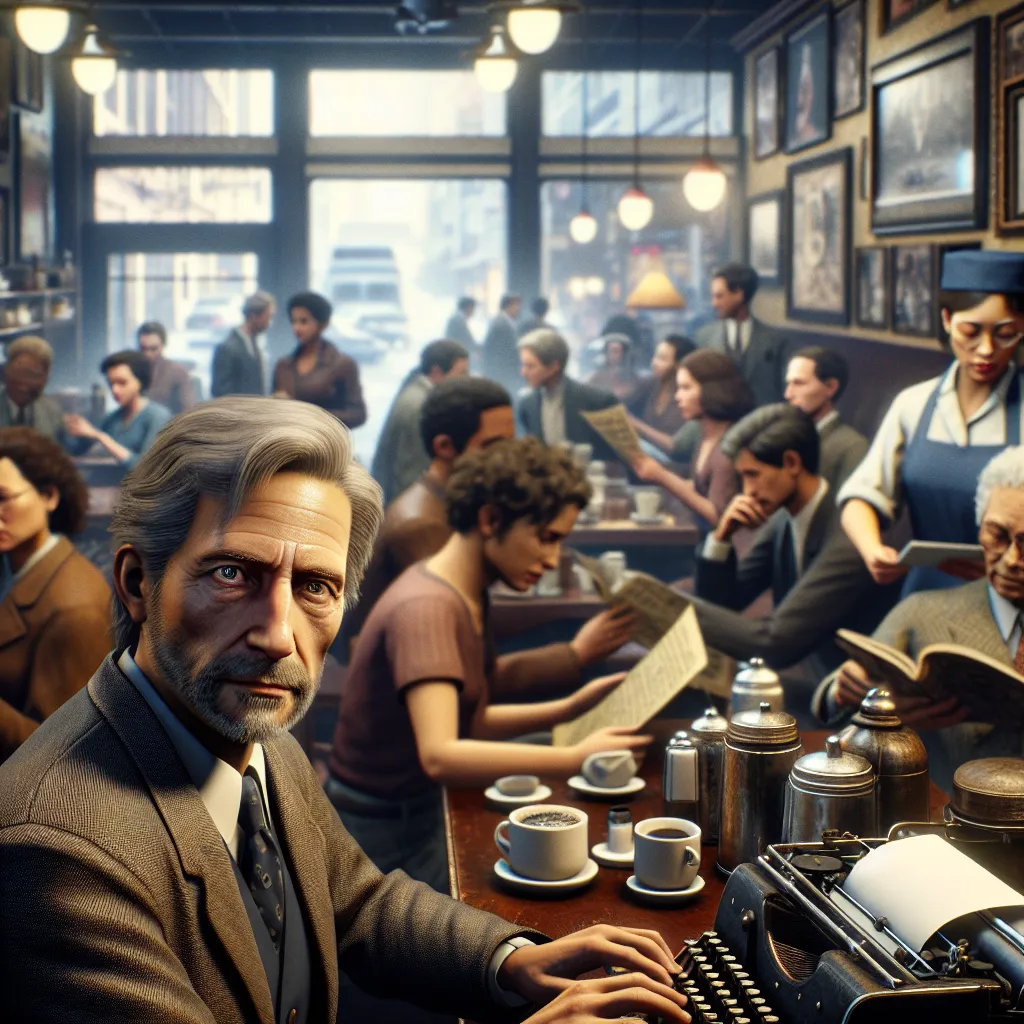
"Through the Lens of a Sociologist, Through the Ear of a Storyteller"
In the bustling city of New York, there lived a man named Dr. Samuel, a renowned sociologist with an uncanny ability to observe and analyze the complexities of human behavior. He had a sociologist's eye, always keen to dissect the intricate web of social interactions, norms, and cultures. Yet, he was not just a man of science. He also had a storyteller's ear, always attuned to the rhythm and melody of human narratives, the tales of joy and sorrow, triumph and defeat, love and loss that painted the canvas of human life.
Every morning, Dr. Samuel would sit in his favorite coffee shop, sipping his black coffee, and observing the world around him. He watched as the city woke up, as people hurried to their jobs, as the homeless man on the corner begged for change, as the children laughed on their way to school. He saw the stories that unfolded in front of him, the drama of life in its rawest form.
He would then return to his office, a small room filled with books and papers, and begin to write. He wrote about the people he saw, the stories he heard, the patterns he observed. He wrote about the single mother struggling to make ends meet, the businessman lost in his world of power and money, the teenager grappling with his identity. He wrote about the city, its rhythm and pulse, its beauty and ugliness, its hopes and fears.
But Dr. Samuel was not just a passive observer. He was a part of the city, a part of its story. He interacted with the people he wrote about, listened to their stories, shared their joys and sorrows. He was a sociologist, yes, but he was also a storyteller, a weaver of narratives that reflected the human condition.
His work was a unique blend of scientific analysis and artistic expression. He used his sociologist's eye to understand the social structures that shaped people's lives, and his storyteller's ear to capture the emotional depth of their experiences. His writings were not just academic papers, they were stories, stories that resonated with people, stories that made them think, feel, and reflect.
Dr. Samuel's work was a testament to the power of observation and empathy, of understanding and storytelling. He showed that sociology was not just about statistics and theories, but about people and their stories. And he showed that storytelling was not just about entertainment, but about understanding, about making sense of the world around us.
In the end, Dr. Samuel was not just a sociologist or a storyteller. He was a bridge between the two worlds, a man who used his sociologist's eye and his storyteller's ear to bring to light the complexities of human life, to make us see the world in a new way, to make us understand each other a little better. And in doing so, he showed us the power of sociology and storytelling, the power of a sociologist's eye and a storyteller's ear.